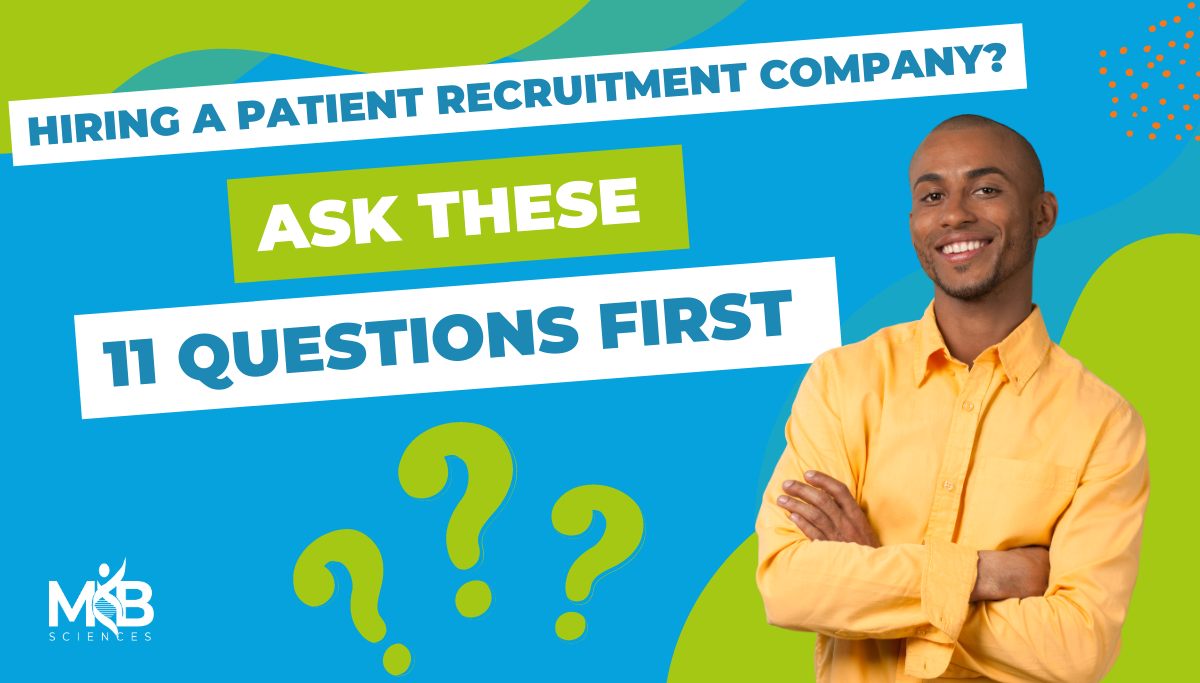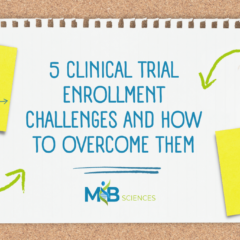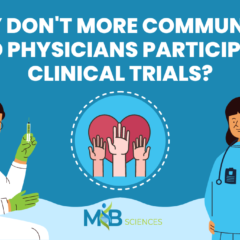Hiring A Patient Recruitment Company? Ask These 11 Questions First
The right patient recruitment company can help sponsors and site directors identify patient populations that are representative of the people who will benefit from their drug or device and recruit them in the most efficient, cost-effective manner.
In addition to accelerating the patient enrollment process, they can improve patient engagement and retention so your trial avoids delays due to turnover.
Patient recruitment for clinical trials is big business, expected to grow at an annual rate of 8% per year through 2027, according to MarketWatch. It’s dominated by large companies that are growing even larger through consolidation in the industry and standardizing services, which can make it difficult to differentiate one patient recruitment firm from another.
If you’re considering patient recruitment services, here are 11 essential questions to ask first.
Questions to ask every patient recruitment company
1. Is your data collection process secure and HIPAA-compliant?
The patient recruitment firm you hire will be responsible for collecting personally identifiable information and private health information, so it’s essential to ask how their processes and technology meet HIPAA laws. This applies to any software vendor they use to collect patient data as well. The firm and its software vendor should be able to provide details on important elements of HIPAA compliance, including:
-
- How they educate and train their employees, including understanding the consequences of violations and reporting a breach
- How they protect patient data using encryption
- How they grant access to employees using the principles of least privilege
- How they monitor their software for vulnerabilities
- How they respond to a data breach or recover data following a natural disaster
- How long they retain patient data
2. How do you identify diverse patient populations?
Achieving diversity in clinical trials isn’t just ideal to ensure drugs and devices are safe for everyone; it’s becoming an FDA requirement. Within the next year, the FDA is expected to release more details about what sponsors need to include in their diversity plans, which means they should be taking steps now to evaluate and adjust their recruitment strategies accordingly.
Before working with a patient recruitment firm, ask for more detail about how they will identify and recruit patients representing different ages, races, ethnicities, geographies, and socioeconomic backgrounds.
Do they have access to extensive patient databases or patient registries? Are they simply using social media targeting parameters, or are they reaching out in more personal, proactive ways as well?
Do they have partnerships with community-based physicians and organizations who can refer patients?
3. What patient recruitment metrics do you measure?
This question is fundamental to understanding whether the financial goals and incentive structures of the vendor align with your goals.
Some vendors will refer a large volume of unqualified patients because they are charging sponsors based on metrics that don’t directly tie to their recruitment performance. They may report on metrics that appear to be strong on the surface, such as impressions, clicks and pageviews, without diving deeper into whether those patients make it through the screening process.
Look for a vendor who is committed to mutually agreed-upon metrics, such as average recruitment rate, the number of patients who meet enrollment criteria, and the actual number of screened or enrolled patients.
4. How do you handle patient enrollment challenges?
A good patient recruitment company will become an extension of your team, enhancing the work you are already doing and helping you overcome roadblocks.
Look for a firm that will start by analyzing your current strategy and identifying opportunities to improve it. They should be able to combine digital, traditional, and community outreach recruitment methods to achieve your recruitment goals.
Some vendors specialize in optimizing study design for patient recruitment beginning in the early stages of protocol design, while others are more experienced with rescue support and have the resources to recruit patients within a tight timeline when sponsors are struggling.
5. How will your team communicate with ours?
Your patient recruitment company will be working with you for months or longer, depending on the services they provide, so it’s always a good idea to establish expectations around communication.
You’ll want to know how often you can expect to meet with them, who your main point of contact will be, how often they will report on the agreed upon metrics, and what communication methods they use most often.
A good recruitment partner will have standard processes in place but also be able to take a consultative approach based on the support you need at various stages.
6. Do you have an in-house marketing team?
Marketing and advertising are core aspects of patient recruitment, and the firm you choose should have in-house capabilities in this area.
In addition to extensive experience marketing clinical trials to patients, marketing teams should have a solid understanding of how to work with difficult IRB review processes and internal reviews. They should be able to take input from the patient community, pair the feedback with robust datasets, and use the information to create marketing materials that engage potential applicants while following requirements needed to obtain regulatory approval.
7. What is your pricing model?
Patient recruitment companies have different pricing models, so it’s important to understand how they will charge for their services. Some companies charge a flat fee for each enrolled patient. They may use what’s known as a shared-risk model, where the majority of the charges are billed toward the end of the engagement depending on how many patients have been screened or enrolled. Others charge monthly fees that encompass a range of services, while others bill separately for charges such as marketing and related costs.
One company’s pricing model isn’t necessarily better than another as long as everyone agrees on what services are included.
8. What therapeutic expertise do you have?
It’s helpful for a patient recruitment partner to have experience with the condition you are treating or conditions that have similar challenges.
For example, if you are looking for help in recruiting for a Parkinson’s clinical trial, a patient recruitment company that has recruited for a condition like ALS would have similar experience in neurodegenerative rare diseases.
It’s always a good idea to ask for case studies and metrics from previous trials they’ve supported.
If the vendor doesn’t have experience in your therapeutic area, it is important to ask what processes they have in place to accurately determine the recruitment expectations prior to launching their campaigns and efforts. The right vendor will be able to accurately predict the potential pitfalls for recruitment in any therapeutic area regardless of previous experience, as well as the expectations for the recruitment difficulty levels.
9. What is your patient screening process?
One of the most important determinants of success for a patient recruitment campaign is the screening of potential trial participants. Screening can include patients simply responding to digital ads and filling out a form to digital pre-screening or more advanced phone screening, depending on your trial. The ideal recruitment partner will be able to create a screening process that is easy for patients and effective and efficient for you.
The more experience your recruitment company has with your target patient population, the smoother this process will be.
10. Can patients recruited for one study be eligible for another?
If you are running more than one trial within the same condition field that requires a similar patient population, your patient recruitment vendor may be able to refer patients who don’t qualify for one study to participate in another. You’ll want to ask how they handle this and whether they charge additional fees for referrals to other trials in your portfolio.
The right recruitment vendor should have the flexibility to accommodate this request.
11. Do you support patient recruitment and patient retention?
Some companies may specialize only in patient recruitment, or only in patient retention. If you need both services, it’s ideal to find one vendor with both capabilities. Patient retention services may include communicating with patients throughout the trial, providing follow-up documentation, answering questions, and even providing support with travel arrangements if needed. These additional services can help your site coordinators focus on other responsibilities, including data safety monitoring and ensuring regulatory compliance.
M&B Sciences: A unique approach to patient recruitment
While many patient recruitment firms focus primarily on marketing, M&B Sciences combines deep expertise in clinical trials, spatial epidemiology, and technology with authentic community partnerships.
We use hyperlocal health and demographic data to identify ideal patient populations with a focus on diversity. This data allows us to be much more targeted in our approach to patient recruitment, saving you considerable time and money. In many cases, we are able to significantly accelerate the pace of recruitment to be up to eight times faster than a team’s in-house efforts.
Our Neighborhood Trials app makes it easy for patients to find trials close and easy for them to enroll, while our platform makes it easy for sponsors to screen them.
Additionally, we have a broad network of community partners who have established trust with diverse patient populations. This helps sponsors overcome challenges sponsors encounter, such as a lack of awareness of clinical trials or language barriers.
We also provide concierge services to patients throughout the trial, such as arranging travel and transportation. This engagement and retention to keep your trial on track.
In March 2023, we acquired Clara Health, a leader in patient recruitment and retention technology since 2015, to further expand our services to support clinical trial teams, including protocol design and site selection.
If you’re ready to learn more about what we can offer, contact us for a consultation.
[/vc_column_text][/vc_column][/vc_row]



